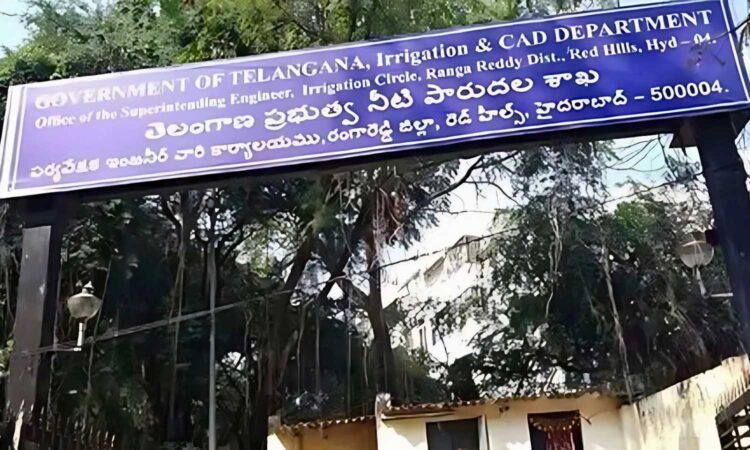Hyderabad: The Telangana government has issued show cause notices to 38 engineers from the irrigation department based on recommendations made by the State Vigilance Commission in its report on the Kaleshwaram project. The notices, served last week, direct the engineers to respond to the allegations within three weeks.
The commission’s March report had called for criminal proceedings against 17 engineers and major penalties against another 40. The government has now initiated action against 38 of those named.
The move has triggered strong protests within the irrigation department. Officials accused the commission of targeting their department disproportionately while ignoring procedural norms. Many said that the way the inquiry was handled and the nature of the notices suggest a punitive approach rather than a fact-finding exercise.
Engineers also criticised the composition of the Vigilance Commission, stating that key posts — including Chief Engineer, Assistant Engineer, and Junior Engineer ranks — are currently held by officers from Panchayati Raj and Roads & Buildings departments, leaving irrigation engineers without adequate representation. They argued that a commission investigating irrigation works should be staffed primarily by irrigation personnel.
Several pointed out that the Kaleshwaram project was planned and cleared by high-level committees comprising Chief Engineers and technical heads. In that context, assigning blame to executive and deputy engineers while excluding the top-level approvers made little sense, they said.
Officers who were summoned during the inquiry said they were asked to respond immediately without sufficient time to present supporting documents. Requests for time were denied, and engineers allege they were instructed to submit whatever explanation they could on the spot. Despite submitting detailed replies with records on multiple occasions, they claimed the commission failed to take any of it into account.
They also said the commission overstepped by probing technical decisions without appropriate expertise. Some maintained that if procedural lapses or doubts are found, standard practice is to seek explanation from the officer concerned and drop charges if the response is reasonable. That process, they argued, was bypassed.
Anger has also been directed at the state government for acting on the report without conducting an internal assessment. Engineers warned that unless the approach changes, no officer will be willing to take responsibility for future projects, leading to paralysis in ongoing and planned works.










